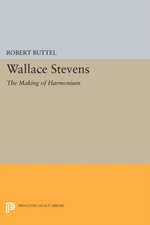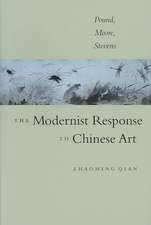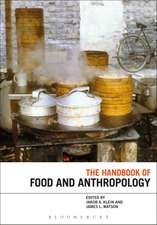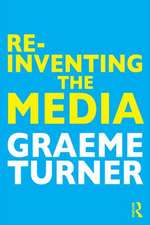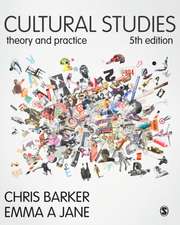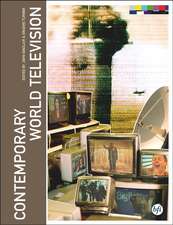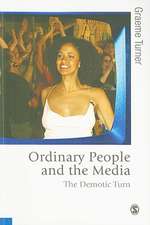What's Become of Cultural Studies?
Autor Graeme Turneren Limba Engleză Paperback – 30 noi 2011
"Graeme Turner is one of the most remarkable figures in the world of cultural studies. He has helped to make and remake the field over the last twenty-five years. So when he sets his alarm clock - and it goes off loudly - we all know it's time to pay attention. This extraordinary testament to what is right and wrong with cultural studies today will reverberate across the globe."
Toby Miller, University of California
This original, sharp and engaging book draws the reader into a compelling exploration of cultural studies in the twenty-first century.It offers a level-headed account of where cultural studies has come from, the methodological and theoretical dilemmas that it faces today and an agenda for its future development.
In an age in which the relevance of cultural studies has been called into question, this book seeks to generate debate. Focusing upon the actual practice of cultural studies within the university today, it asks whether or not cultural studies has really managed to maintain a connection with its original political and ethical mission and comments on the strategies needed to regain the initiative.
Written by a world class figure in cultural studies, each chapter supports and guides the reader by introducing the key issues, reviewing the relevant commentary and offering a critical conclusion of how each theme fits into a bigger picture.This timely and provocative consideration of cultural studies as a global discipline will be essential reading for academics and students working in the field for years to come.
Preț: 415.25 lei
Nou
79.46€ • 82.96$ • 65.76£
Carte tipărită la comandă
Livrare economică 05-19 aprilie
Specificații
ISBN-10: 1849205841
Pagini: 200
Dimensiuni: 148 x 210 x 12 mm
Greutate: 0.27 kg
Ediția:1
Editura: SAGE Publications
Colecția Sage Publications Ltd
Locul publicării:London, United Kingdom
Recenzii
Jim McGuigan
Loughborough University
Graeme Turner is one of the most remarkable figures in the world of cultural studies. He has helped to make and remake the field over the last twenty-five years. So when he sets his alarm clock--and it goes off loudly--we all know it's time to pay attention. This extraordinary testament to what is right and wrong with cultural studies today will reverberate across the globe
Toby Miller
University of California - author of Makeover Nation: The United States of Reinvention
Cuprins
Introduction: Practising Cultural Studies Today
Chapter 1: The Achievements of Cultural Studies
The Institution of Cultural Studies
Cultural Studies and...
Chapter 2: The 'Un-Discipline': Cultural Studies and Interdisciplinarity
Being 'Undisciplined'
The Limits of Interdisciplinarity
So, What Next....
Chapter 3: Teaching Cultural Studies
The Marginalization of Teaching
Cultural Studies 101
Old News and Bad News
Chapter 4: Unintended Consequences: Convergence Culture, New Media Studies and Creative Industries
The Return of Cultural Populism
Convergence Culture, Cultural Studies and The Curriculum
Two Stories
Chapter 5: Internationalizing Cultural Studies: From Diaspora to Indigeneity
From Diaspora to Indigeneity
Inter-Asia Cultural Studies
Chapter 6: Does Cultural Studies Have a Future?
Cultural Studies and the Public Good
An Interdisciplinary Lingua Franca
Descriere
A superb overview of cultural studies written by a world class authority this book explores where cultural studies has come from, the methodological and theoretical challenges it faces today and sets an agenda for its future development.






